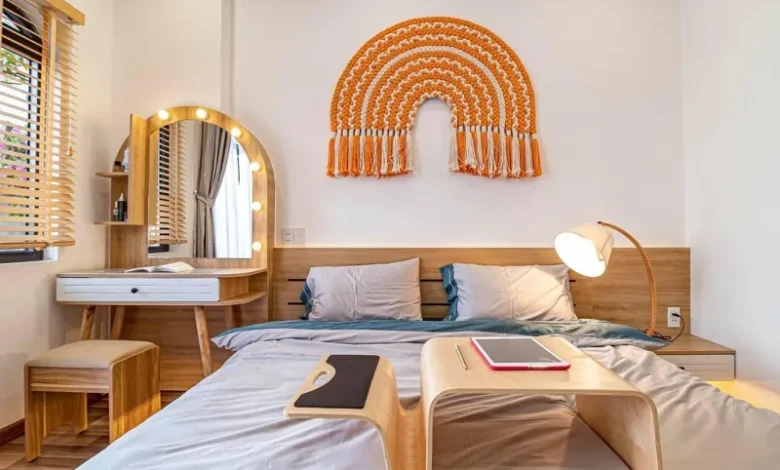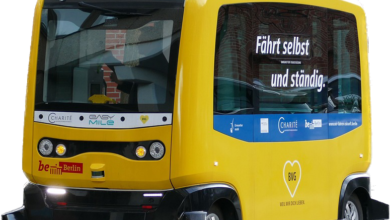Incorporating Tech and Individualization into the Hospitality Industry

The hospitality sector has a long-standing reputation for being dedicated to providing outstanding experiences for its customers. The integration of innovative solutions has become a driving force in redefining the way guests interact with hotels and other hospitality facilities as the rate of technological advancement continues to accelerate at an ever-increasing rate. This article examines the revolutionary possibilities of adopting technology and customization in the hospitality sector and how it can alter the experience of being a guest in a hotel or other type of establishment.
Importance of the Hospitality Industry
The hospitality industry plays a crucial role in the global economy, encompassing a wide range of businesses, including hotels, restaurants, resorts, and travel services. It not only provides employment opportunities but also contributes significantly to local and international tourism, fostering cultural exchange and economic growth.
Rapid Advancements in Technology
The 21st century has witnessed unprecedented advancements in technology, impacting nearly every aspect of our lives. In the hospitality sector, these advancements have the potential to create memorable and seamless guest experiences while optimizing operational efficiency.
Integrating Technology in Hospitality
- a) AI-powered Chatbots for Efficient Customer Service
One of the most notable technological integrations in the hospitality industry is the use of AI-powered chatbots. These intelligent virtual assistants can handle routine guest inquiries, provide personalized recommendations, and assist with booking processes. By automating customer service, hotels can enhance response times, increase guest satisfaction, and free up staff to focus on more complex guest needs.
- b) IoT Applications for Smart Hotel Rooms and Personalized Experiences
The Internet of Things (IoT) has opened up a realm of possibilities for transforming traditional hotel rooms into smart, connected spaces. Guests can now control lighting, temperature, and entertainment systems through their smartphones, ensuring a personalized and comfortable stay. IoT also enables hoteliers to gather data on guest preferences, facilitating tailored services and amenities.
- c) Automation in Guest Check-in, Check-out, and Concierge Services
Automation has become increasingly prevalent in streamlining guest check-in and check-out processes. Self-check-in kiosks and mobile apps allow guests to bypass long queues and complete these tasks efficiently. Additionally, virtual concierge services enable guests to access information, book activities, and request assistance conveniently.
Enhancing Guest Experiences
- a) Personalization through Data Analytics and Guest Preferences
Data analytics plays a pivotal role in understanding guest behavior and preferences. By analyzing data from various touchpoints, including previous stays, social media interactions, and feedback, hotels can create highly personalized experiences. From tailored room amenities to curated local experiences, personalization cultivates a sense of exclusivity and loyalty.
- b) Virtual Reality (VR) and Augmented Reality (AR) for Immersive Experiences
The integration of VR and AR technologies in the hospitality industry opens new frontiers for guest experiences. Virtual tours allow potential guests to explore hotel facilities and rooms before booking, while AR enhances the on-site experience through interactive guides and informative overlays.
- c) Smart Hotel Rooms with Personalized Amenities and Controls
Smart hotel rooms are equipped with sensors and devices that adapt to guests’ preferences automatically. Temperature, lighting, and entertainment systems adjust based on individual preferences, creating a truly personalized and comfortable environment.
Streamlining Operations
- a) AI-driven Revenue Management Systems for Pricing Optimization
AI-powered revenue management systems analyze market trends, demand patterns, and competitor prices to optimize room rates. This technology ensures that hotels can maximize their revenue while offering competitive prices to guests.
- b) Robotic Process Automation (RPA) in Back-office Tasks
RPA automates repetitive and time-consuming back-office tasks such as accounting, inventory management, and data entry. By delegating these tasks to robots, hotel staff can focus on more strategic and guest-oriented activities.
- c) Internet of Things (IoT) for Facility Management and Maintenance
IoT-enabled sensors monitor equipment and facilities in real-time, allowing for predictive maintenance. This proactive approach reduces downtime and ensures a smooth and uninterrupted guest experience.
Balancing Technology with Human Touch
- a) Importance of Human Interactions in Hospitality
While technology brings numerous benefits, the human touch remains indispensable in the hospitality industry. Genuine interactions and emotional connections between guests and staff create a memorable experience that technology alone cannot replicate.
- b) Training Staff for a Tech-Augmented Guest Experience
To leverage the potential of technology while maintaining genuine interactions, hotel staff must receive adequate training. This includes learning how to use technology effectively, interpreting data insights, and understanding when to intervene and provide personalized assistance.
- c) Fostering Genuine Connections Amid Technological Advancements
Hotels must strike a balance between technology and human interactions to create an unforgettable guest experience. By seamlessly integrating technology into guest services and training staff to deliver personalized service, establishments can foster genuine connections that resonate with guests long after they leave.
Challenges and Considerations
- a) Data Privacy and Security Concerns
As hotels gather vast amounts of guest data for personalization, concerns about data privacy and security arise. It is essential for hospitality businesses to prioritize data protection and implement robust cybersecurity measures to safeguard guest information.
- b) Addressing Potential Job Displacement
The automation of certain tasks may raise concerns about job displacement in the hospitality industry. However, by leveraging technology to enhance guest experiences, hotels can reassign employees to roles that require a human touch and creativity, ultimately improving overall service quality.
- c) Ensuring Inclusivity and Accessibility in Tech-Driven Services
Hospitality businesses must ensure that technology-driven services are inclusive and accessible to all guests, regardless of their age, abilities, or technological literacy. This involves considering the needs of diverse demographics and offering alternative options for those who may not be comfortable with certain technologies.
Conclusion
The key to success in the hotel industry of the future will be finding a happy medium between personalization and technological advancement. Hotels are able to provide guests with experiences that cannot be matched while simultaneously maximizing their operational efficiency if they embrace technological breakthroughs and harness the power of data. However, it is essential to keep in mind that the personal touch will always be at the heart of hospitality and that making genuine connections with guests will always be the most important factor in ensuring they leave with cherished memories. The hospitality sector has a bright future ahead of it because it has embraced technology while maintaining the heart of traditional, customized hospitality.





